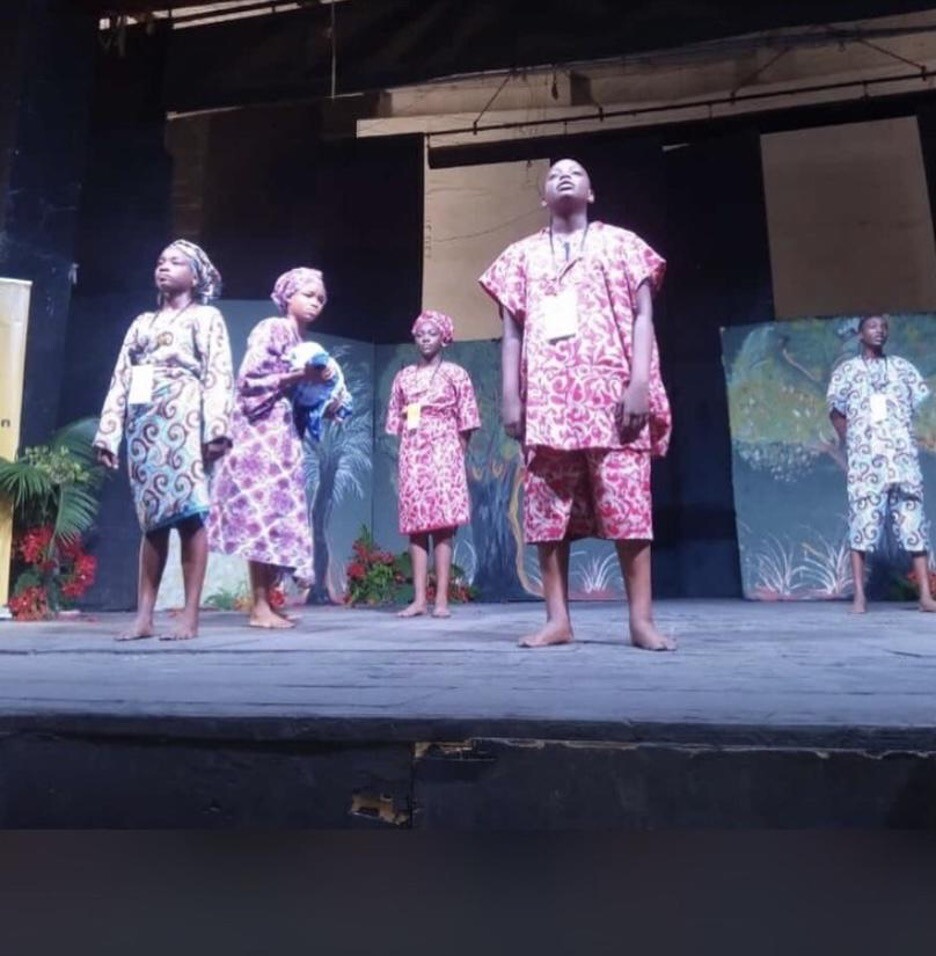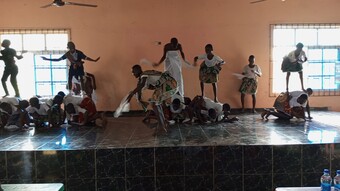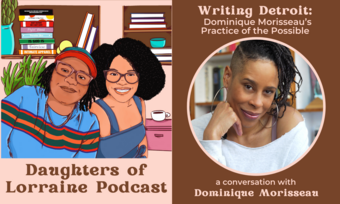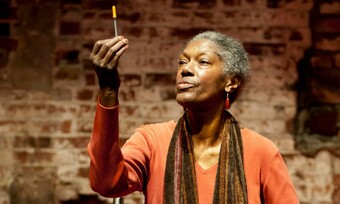Theatre education in secondary schools (which includes seventh grade through twelfth grade students) is still a new phenomenon in Nigeria due to people's lack of knowledge on its benefits. It’s an uncommon form of theatre in Nigeria, both in theory and practice—largely because it is underfunded which has resulted in the lack of theatre educators in the country. Because of this, my team and I organized the Mobile Telephone Network (MTN) Foundation’s Theatre for Schools competition in collaboration with the Concord School in Ibadan, the capital city of Oyo State, Nigeria. Through this program, we hoped to increase theatre education and visibility as an art form in Nigeria.
For three weeks, I worked with the students at the Concord School in Ibadan. The program was particularly impactful for the children I worked with, but I admit it was also a life-changing experience for me as a theatre student at the University of Ibadan, Nigeria. The program was created by the MTN Foundation in Nigeria, and my teammates—Emeto Nonso and Fakile Kayode—and I were selected out of a pool of several students based on our academic excellence and advanced experience with theatre in Nigeria. The play we worked on, The Adventures of LangaLanga, was written by the foundation. The show centers on the educational life and performance of the protagonist named Langa, a young schoolboy who was sent to secondary school for his studies but instead engages in unruly acts and indiscipline in school. This behavior later led to failure in academic performance, which led to his expulsion from the school. Our job was to prepare the students for a performance of this piece.
Most of the Concord students had no prior experience with professional theatre performance, where performers are given scripts and undergo scores of rehearsals to put on a production. Their only theatrical experience came from the cultural programs organized by their school as extracurricular activities, which only involved dance, music, and improvised playlets. Therefore, this experience was their first time experiencing theatre as it is. My objective was to make the pupils discover the various forms of theatre, including musical theatre, pantomime, and the large field of performance, which includes playback theatre. I also lead various activities with them such as dance, music, and design as a way of showing that theatre is a practice-based art form that relies on collaborative performance.
Naturally, the process seemed tedious at first because they didn’t have an idea of what was required of them, but they were open to exploration. Their quick integration and adaptability made it so that within a week, they were already immersed in theatre. They were not passive but instead very active and interested in exploring the script and everything we taught them, including how to move onstage, how to project their voices, how to do simple dance movements, and relevant music related to the performance. (Some songs came from the script, while my team and I also taught them new songs.)













Comments
The article is just the start of the conversation—we want to know what you think about this subject, too! HowlRound is a space for knowledge-sharing, and we welcome spirited, thoughtful, and on-topic dialogue. Find our full comments policy here
This is really great. I love how you use theatre to educate the young adults in out society. This piece really portrayed the role theatre plays in the modern society. Well-done, Kofoworola.
Really happy to have my work published on Howlround journal, I hope the theatre education process in this article will guide and motivate other theatre educators around the world.